The Foresight Committee has guided the Institute and steered its development since 2001. The international reputation of its members, and the specific knowledge each of them contributes in his or her own field – human sciences, economics, public health, climate sciences – are the cornerstone of the Institute’s strong scientific credibility.
How the Committee works
At its meetings, the Foresight Committee interacts with experts on forward-looking topics. These discussions enable the Institute to define future research and conference themes, and to shed light on its existing work projects. They also provide an opportunity for the Committee members to validate ongoing projects with the team.
Members of the Foresight Committee :
-
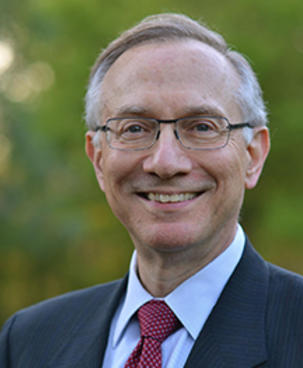 Harvey FinebergPresident of the Gordon and Betty Moore Foundation
Harvey FinebergPresident of the Gordon and Betty Moore FoundationHarvey Fineberg is President of the Gordon and Betty Moore Foundation, and was formerly President of the Institute of Medicine from 2002 to 2014. He served as Provost of Harvard University from 1997 to 2000, following thirteen years as Dean of the Harvard School of Public Health. He has also served as the President of the Society for Medical Decision Making and as an Advisor to the World Health Organization.
As a specialist in health policy and in decision analysis, he has devoted much a large amount of research to the evaluation of medical technologies, vaccines, and the development of healthcare innovations. At the Institute of Medicine, he has directed research in numerous fields (AIDS, medical technologies, and risk in society).
His work has been recognized by many prestigious awards, including the Frank A. Calderone Prize in public health, the Henry G. Friesen International Prize in Health Research, the Steven Smith Medal for Lifetime Achievement in Public Health, and the Harvard Medal. -
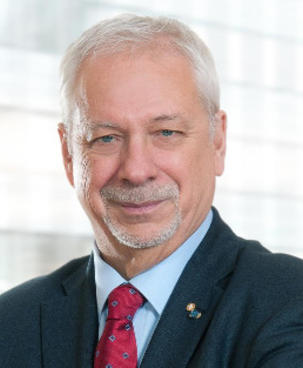 Pierre-Marc JohnsonInternational lawyer, former First Minister of Quebec,
Pierre-Marc JohnsonInternational lawyer, former First Minister of Quebec,After taking degrees in both law and medicine, Pierre Marc Johnson initially focused on a career in politics: from 1976 to 1987, he was a member of Quebec’s national assembly, occupying several ministerial posts before becoming Premier in 1985. Since leaving politics in 1987, he has made a notable contribution to questions of public policy on sustainable development.
As a consultant lawyer at the Lavery law firm in Montreal, and as a company director, he supervises negotiations and develops commercial partnerships of international scope. Since 2009 he has been the Quebec government’s chief negotiator both in the Comprehensive Economic Trade Agreement talks between Canada and the European Union, and in the softwood lumber dispute between Canada and the United States.
He has also taken part in numerous international negotiations on environmental and development issues, notably acting as General Rapporteur at the Bergen Conference (Norway, 1991), as Special Advisor to the Secretary General at the UN Conference on Environment and Development (Rio, 1992), as working group chairman and mediator on financial questions for the Conference of the Parties to the United Nations Convention to Combat Desertification (UNCCD) (1993-1997), and as the UN’s project director in Africa to implement the initial stages of the Convention.
He has also chaired the Ten-year Review and Assessment Committee for the North-American Agreement on Environmental Cooperation (2003) and, from 1990 to 1997, the Foreign Policy Committee of the National Round Table on the Environment and the Economy of Canada, has acted as expert advisor for various preparatory meetings of the G7, and subsequently G8, on sustainable development questions, and has been a member of the International Union for Conservation of Nature (IUCN). -
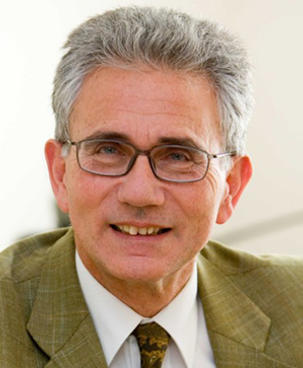 Philippe KourilskyHonorary Director General of the Pasteur Institute
Philippe KourilskyHonorary Director General of the Pasteur InstitutePhilippe Kourilsky spent most of his career at the Centre national de la recherche scientifique (CNRS) before being appointed Professor at the Collège de France in 1998, where he holds the chair in molecular immunology. He previously served as Director of Scientific Research at Pasteur-Merieux Connaught (1992-1995) and as Director General of the Pasteur Institute (2000-2005). He also headed the Immunology Network in Singapore from 2006 to 2013. In 2010, he founded the non-profit organization Resolis.
Philippe Kourilsky has published nearly 400 papers in international scientific reviews. He has contributed, via numerous articles and appearances, to the public debate about the issues raised by research in the life sciences. He has authored two government reports: one on the Principle of Precaution (1999), submitted to the French Prime Minister, the other on the issues surrounding infectious diseases in developing countries (2006). He has written several books for the general audience, including Les Artisans de l'Hérédité, La Science en Partage, Du bon usage du Principe de Précaution, Le temps de l’altruisme and Le manifeste de l’altruisme (Éditions Odile Jacob).
He is a member of the French Academy of Sciences, of Academia Europea, and of EMBO (European Molecular Biology Organization). He has received many awards: the Prix international d'Immunopathologie (1986), the Prix Lacassagne from the Collège de France (1990), and the International Prize for Research in Medical Science (2000). He has honorary doctorates from the University of La Sapienza, Rome (2001), the University of Quebec (2005) and the University of London (2013). Philipe Kourilsky is a Commander of France’s National Order of Merit and a Commander of the Legion d'Honneur. -
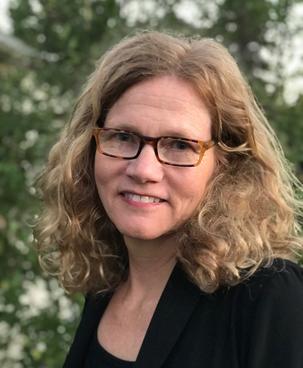 Amy LuersGlobal Lead on Sustainability Science at Microsoft
Amy LuersGlobal Lead on Sustainability Science at MicrosoftAmy Luers is Global Lead on Sustainability Science at Microsoft.
She has over 25 years of experience working at the intersection of science, technology and policy. A former assistant director on climate resilience and information in the Obama White House and senior environment manager at Google, she is a member of the U.S. Council on Foreign Relations and has served on committees of the U.S. Global Change Research Program and the National Academies of Sciences. Dr. Luers started her career working in rural water development in Latin America as co-founder and the first executive director of Agua Para La Vida (Water for Life). She spent a number of years directing the water and climate security work at the Skoll Global Threats Fund. She has also been the head of Future Earth and the global director of the Sustainability in the Digital Age Initiative.
She sits on several advisory boards including the Carnegie Climate Governance Initiative, the IEEE Committee on Ethically Designed AI for a Sustainable Planet, the International Observatory on the US National Council for Science and the Environment.
Amy Luers holds a Ph.D. in environmental science and an M.A. in international policy studies, from Stanford University; a B.S. and M.S. in environmental systems engineering from Humboldt State University; and a B.A. in philosophy from Middlebury College. She has published broadly on climate policy and vulnerability and resilience of human-environmental systems, big data and the digital age, and science communication.
-
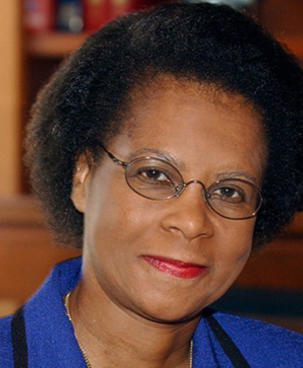 Mamphela RampheleFormer Managing Director of the World Bank
Mamphela RampheleFormer Managing Director of the World BankHaving been – by turns – a student militant, a doctor, a community development activist, a researcher, a university vice-chancellor and an international civil servant, Mamphela Ramphele is now an active citizen in both the public and private sectors.
After the Soweto uprising in 1976, she was detained without trial, freed after five months, and served with an apartheid banning order.
She studied medicine at the University of Natal. She holds a degree in tropical medicine, another in public health, and a doctorate in social anthropology, also picking up a B.Comm degree along the way. She was appointed Vice-Chancellor of the Cape Town University, before becoming one of the four managing directors of the World Bank, based in Washington DC.
Mamphela Ramphele has written several books and publications on socio-economic issues in South Africa, and has been awarded many national and international prizes. She has served as President of Gold Fields, Circle Capital Ventures (Pty) Limited and the Technological Innovation Agency (TIA), and as director of Medi-Clinic Limited and Remgro Limited.
She founded the Open Society Foundation for South Africa and the Citizens’ Movement of South Africa. In January 2013, she became head of the political party Agang SA, which won two seats in the May 2014 general election. After the election, she retired from party politics to return to her role as an active citizen. -
 Marie-Laure Salles-DjelicDirector of the Graduate Institute of International and Development Studies, Chair of IDDRI's Scientific Council
Marie-Laure Salles-DjelicDirector of the Graduate Institute of International and Development Studies, Chair of IDDRI's Scientific CouncilMarie-Laure Salles-Djelic has been Director of the Graduate Institute of International and Development Studies since September 2020. Prior to this, she was Dean of the School of Management and Innovation at Sciences Po Paris, which she launched in 2016. She was also a professor at ESSEC Business School, where she held the positions of Dean of the Faculty and Associate Dean of the Doctoral Program.
She holds a PhD in sociology from Harvard University and a habilitation to direct research from Dauphine University in Paris. Before joining Geneva, she was a professor at the Centre de sociologie des organisations (CSO) at Sciences Po Paris. Her research focuses on social networks, the transformation of capitalism, corporate social responsibility and transnational economic governance in the context of globalization. She has published numerous articles on these subjects in leading academic journals and books, and has received several awards, including the prestigious Max Weber Award for Distinguished Scholarship from the American Sociological Association in 2000.
Marie-Laure Salles-Djelic has been a visiting professor at renowned institutions in the USA and Europe. She holds an honorary doctorate from Stockholm University and was named Chevalier de la Légion d'honneur by the French government in 2017.
-
 Philippe AghionFrench economist, professor at the Collège de France, INSEAD and the London School of Economics
Philippe AghionFrench economist, professor at the Collège de France, INSEAD and the London School of EconomicsPhilippe Aghion is a French economist and a Professor at the College de France, at INSEAD, and at the London School of Economics, as well as a fellow of the Econometric Society and of the American Academy of Arts and Sciences. His research focuses on the economics of innovation and growth.
With Peter Howitt, he pioneered the so-called Schumpeterian Growth theory which became a leading paradigm to analyze the interplay between growth, innovation, market structure, and firm dynamics. In 2001, Philippe Aghion received the Yrjo Jahnsson Award of the best European economist under age 45, in 2009 he received the John Von Neumann Award, and in March 2020 he shared the BBVA “Frontier of Knowledge Award” with Peter Howitt for “developing an economic growth theory based on the innovation that emerges from the process of creative destruction”.
In September 2023, Elisabeth Borne, then French Prime Minister, announced the creation of the Artificial Intelligence Commission, tasked with informing the Government’s decisions to position France as a leader in the challenges of Artificial Intelligence. The Commission is co-chaired by Philippe Aghion and by Anne Bouverot. It submitted a report structured around 25 proposals aimed at making France a major player in the technological revolution offered by AI to the President of the French Republic.
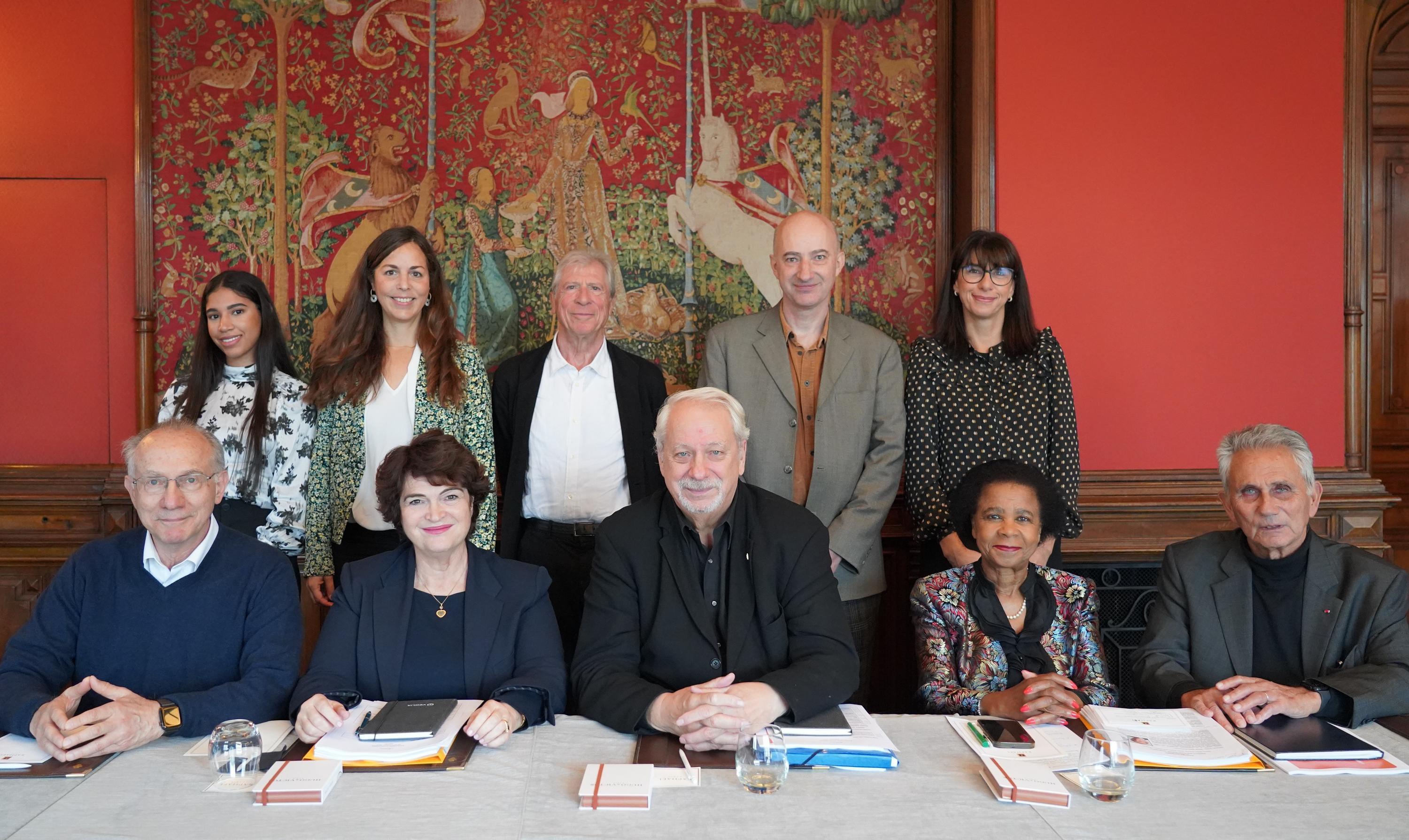
Former member of the Foresight Committee :
-
 Amartya SenWe would like to express our deep gratitude to Amartya Sen, Economist, Nobel Prize 1998, Professor at Harvard, for his valuable contributions and commitment to the work of the Veolia Institute since its creation in 2001.
Amartya SenWe would like to express our deep gratitude to Amartya Sen, Economist, Nobel Prize 1998, Professor at Harvard, for his valuable contributions and commitment to the work of the Veolia Institute since its creation in 2001.Amartya Sen holds the Thomas W. Lamont chair at Harvard, where he teaches economics and philosophy. Until January 2004, he was Master of Trinity College, Cambridge. He was previously Professor of Economics at Jadavpur University Calcutta, the Delhi School of Economics, and the London School of Economics, and Drummond Professor of Political Economy at Oxford University.
Amartya Sen’s research encompasses disciplines such as economics and philosophy, more particularly social choice theory, welfare economics, and the fundamental mechanisms of poverty, leading to a Nobel Prize in Economics in 1998. He has also studied development economics, theory of measurement, and political philosophy.
He has served as President of the Econometric Society, the Indian Economic Association, the American Economic Association and the International Economic Association. He was formerly Honorary President of OXFAM and is now its Honorary Advisor.
Amartya Sen’s books have been translated into more than thirty languages, and include Choice of Techniques (1960), Growth Economics (1970), Collective Choice and Social Welfare (1970), Choice, Welfare and Measurement (1982), Commodities and Capabilities (1987), The Standard of Living (1987), Development as Freedom (1999), Identity and Violence: The Illusion of Destiny (2006), The Idea of Justice (2009), and (jointly with Jean Dreze) An Uncertain Glory: India and Its Contradictions (2013).
Amartya Sen has won many national and international awards, including: Bharat Ratna (India); Commandeur de la Legion d'Honneur (France); the National Humanities Medal (USA); Ordem do Merito Cientifico (Brazil); Honorary Companion of Honour (UK); Aztec Eagle (Mexico); Edinburgh Medal (UK); the George Marshall Award (USA); the Eisenhauer Medal (USA), and the Nobel Prize in Economics.



